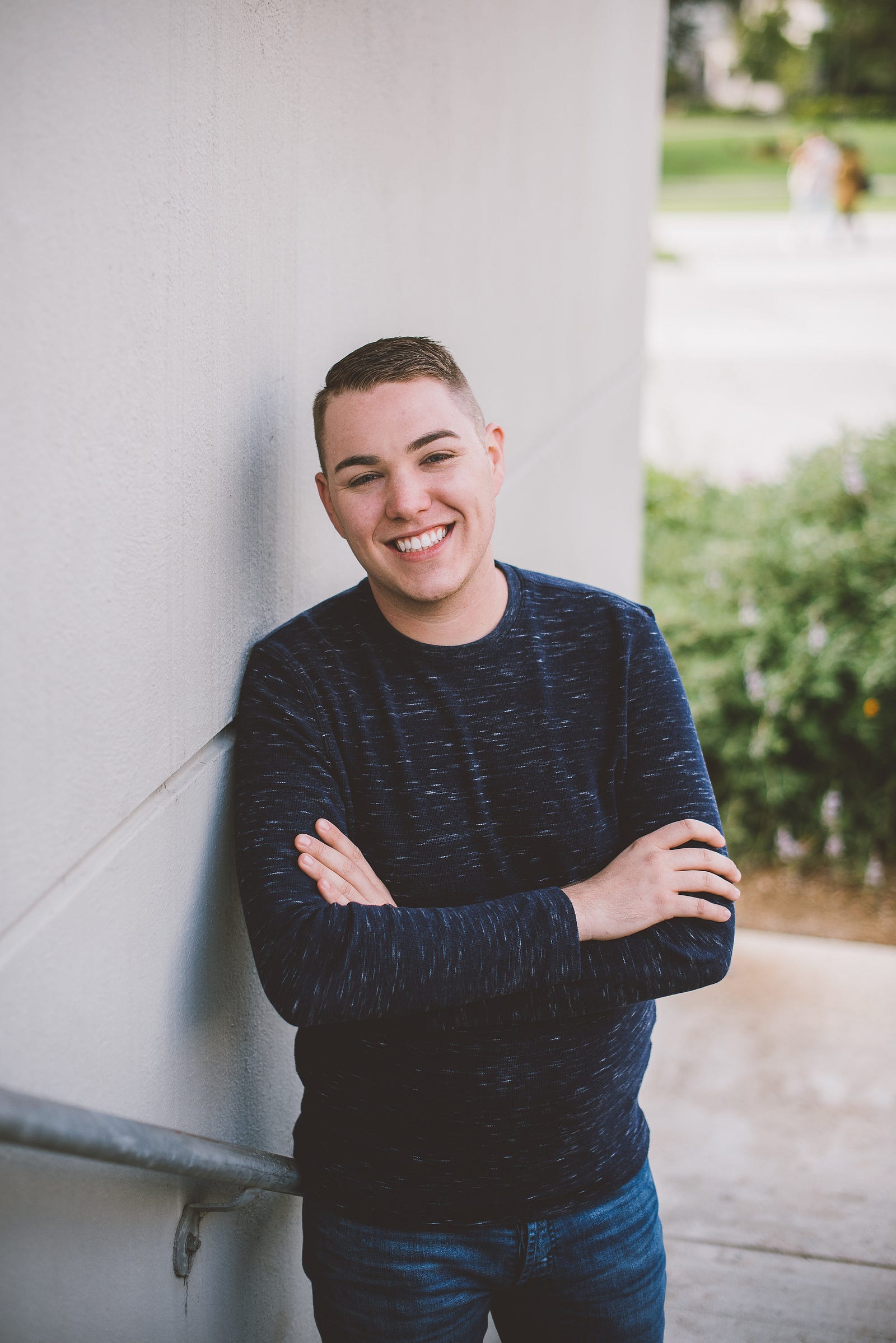As a part of my series about “Mental Health Champions” helping to normalize the focus on mental wellness, I had the pleasure to interview Kyle Elliott, MPA, CHES is the career and life coach behind CaffeinatedKyle.com. Most often, people find themselves contacting Kyle when they need help navigating career and life transitions. As a result of working with him, students through c-suite executives have landed jobs at nearly every Fortune 100/500 company you can think of. They have also found happiness.
Kyle’s passion for coaching has positioned him to present and motivate people on the topics of professional development, mental health, and social justice. Audiences have included Fortune 100/500 companies, startups, government agencies, nonprofits and university campuses, among many others.
When not coaching or speaking, you will likely find Kyle at Starbucks or Disneyland.
Thank you so much for joining us! Can you tell us the “backstory” about what brought you to this specific career path?
I fell into coaching. It started as a side hustle to sustain my soy, sugar-free vanilla latte addiction during college. I charged $5 to review a resume, write a LinkedIn profile summary, or proofread a college essay. As time went on, this side hustle turned into a business that kept growing. I found that I had a knack for not only giving advice but for really uncovering the stories within people. I have a gift for asking the right questions at the right time.
While I still review resumes and LinkedIn profiles and college essays, my work is less tactical and much more strategic. I often work with people who are stuck. A traditional career or life coach hasn’t been able to make progress with them.
I’m known for helping people get unstuck in their job search, career, and life. I’m not afraid to dig deep both within myself and with my clients to help them uncover what’s holding them back. Once we reveal those roadblocks, we then partner together to make headway toward their goals.
It’s hard work, but it’s so rewarding.
According to Mental Health America’s report,over 44 million Americans have a mental health condition. Yet there’s still a stigma about mental illness. Can you share a few reasons you think this is so?
Those of us living with mental illness remain one of those stigmatized groups out there.
As a society, we are afraid to talk about our emotions. When people ask, “How are you?” the natural response is, “Good” or “Fine” even when that’s not the case. Ignoring and muting our emotions can make it difficult for those of us living with mental illness to speak up when we’re not doing OK.
Building upon this, when people do speak up about their emotions, they’re so often dismissed. This not wanting to speak up about your mental health. It perpetuates the cycle of secrecy when it comes to mental illness.
Furthermore, there is the false belief that those with mental illness are more likely to be violent compared to those without mental illness. This can make it unpredictable for those who wish to disclose a diagnosis mental illness.
Despite mental illness being a disease of the brain, it’s rarely treated the same as physical illness. This further exacerbates the stigma associated with mental illness.

Can you tell our readers about how you are helping to de-stigmatize the focus on mental wellness?
The most prominent way in which I am destigmatizing mental illness is by speaking openly and honestly about my lived experiences. I was diagnosed with generalized anxiety disorder (GAD) and obsessive-compulsive disorder (OCD) my sophomore year of college, and later diagnosed with post-traumatic stress disorder (PTSD) in graduate school.
I regularly share my experiences and stories on social media, during speaking engagements, and throughout my everyday life because I wish to normalize conversations surrounding mental illness.
I want mental illness to be something we talk as openly about as cancer or diabetes or any other physical illness. Mental illness is not something to be afraid of or feared.
Was there a story behind why you decided to launch this initiative?
Yes. I can still remember the day I met a then friend for lunch and she inquired as to where I was coming from. When I told my friend I had just gotten back from my weekly therapy session, she shouted, “I didn’t know you were ‘crazy.’ Am I safe being around you?”
In your experience, what should a) individuals b) society, and c) the government do to better support people suffering from mental illness?
As an individual, you can support those living with mental illness by normalizing conversations around not only mental illness but mental health in general.
When you talk about your health, include your mental health. If someone shares the fact that they live with mental illness, respond in the same way you would had they shared they live with, say, asthma.
Additionally, government funding for mental health is unpredictable and often inaccessible to those who need it most mental illness. Policy change is required to ensure those living with mental illness have access to the treatment, resources, and services they need and deserve.
What are your 6 strategies you use to promote your own wellbeing and mental wellness? Can you please give a story or example for each?
I take a very holistic approach to managing my health and well-being: 1) medication, 2) vitamins, 3) meditation and mindfulness, 4) a strong support system, 5) openly talking about my lived experiences, and 6) talk therapy.
My psychiatrist and physician manage and maintain my medication and vitamins. These work in tandem to ensure the chemicals in my brain are where they need to be. I’ve tried nearly every anxiety medication you can think of to find the right cocktail that works for me and my body. It has been quite the journey to get to where I am today.
I partner with my therapist to practice meditation and mindfulness throughout the day. I’m not one to sit and do a 10 or 20-minute meditation every day. I instead prefer to integrate brief moments of mindfulness throughout the day when I’m brewing coffee, washing the dishes, and simply going about my day.
Openly talking about my experience living with mental illness has been therapeutic and allowed me to put my emotions and feelings into words.

What are your favorite books, podcasts, or resources that inspire you to be a mental health champion?
While I’m not a woman or a practicing Christian, I’m a huge fan of the book Present Over Perfect by Shauna Niequist. I’ve read the book multiple times and continually reference it when I’m having a difficult time.
Thank you so much for these insights! This was so inspiring!


